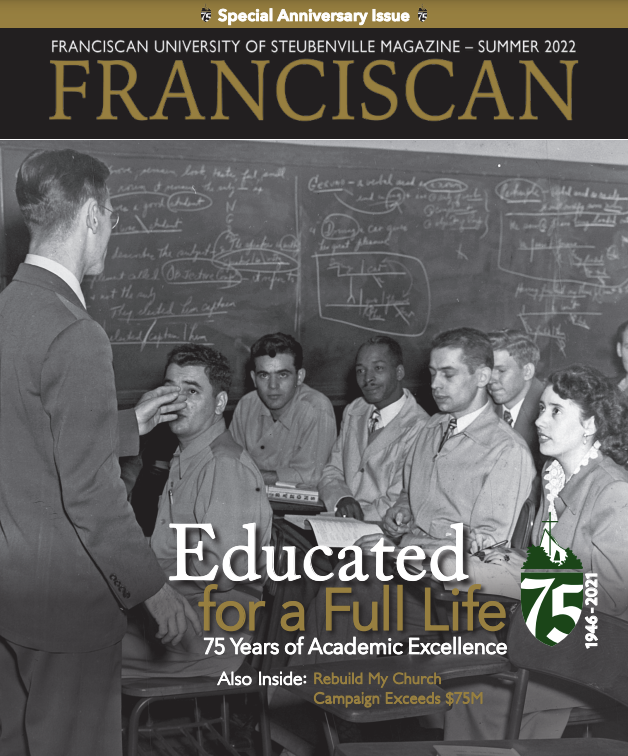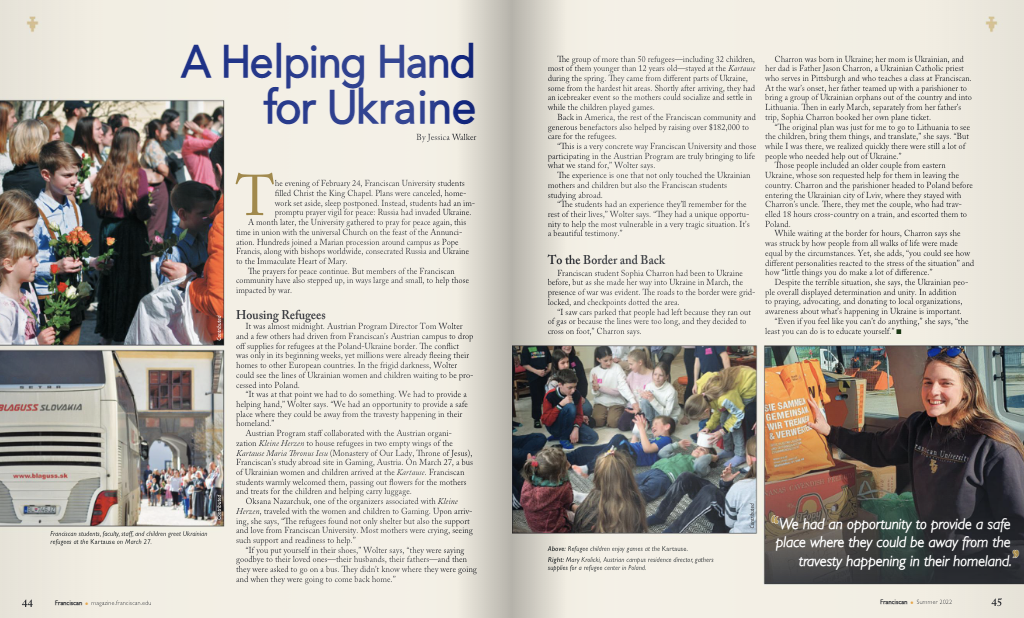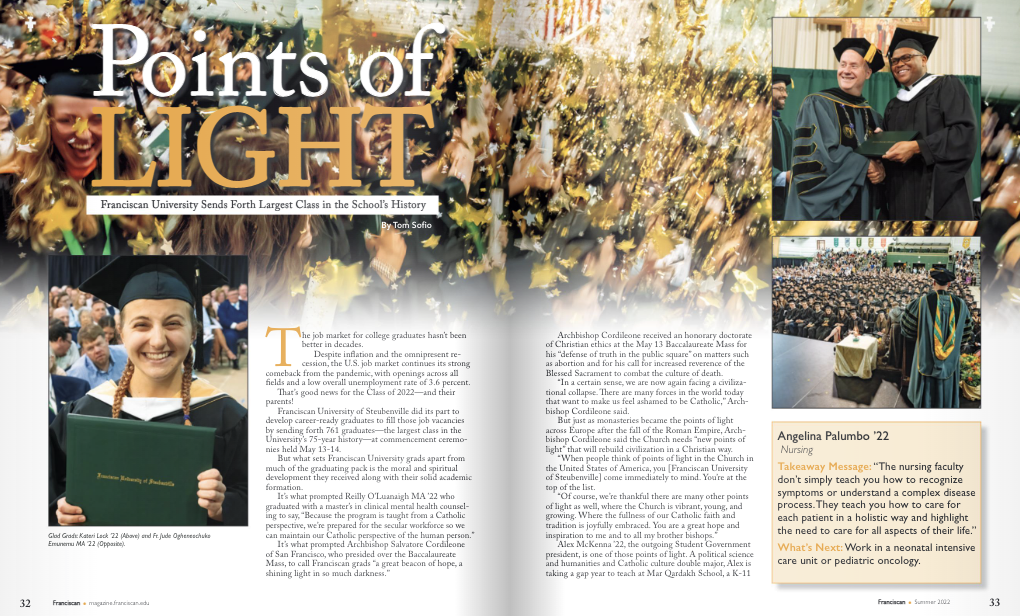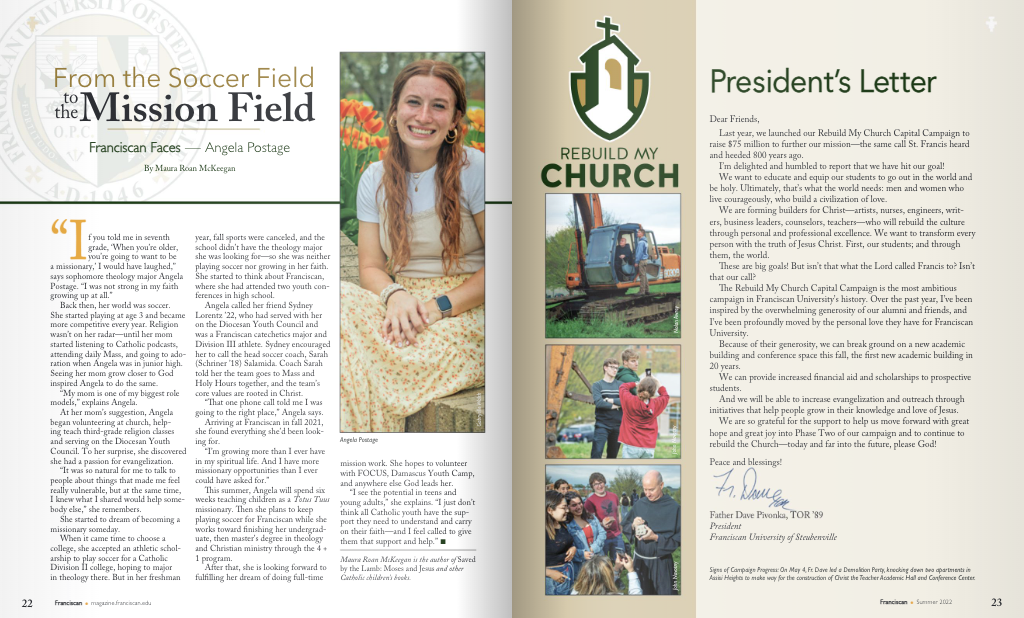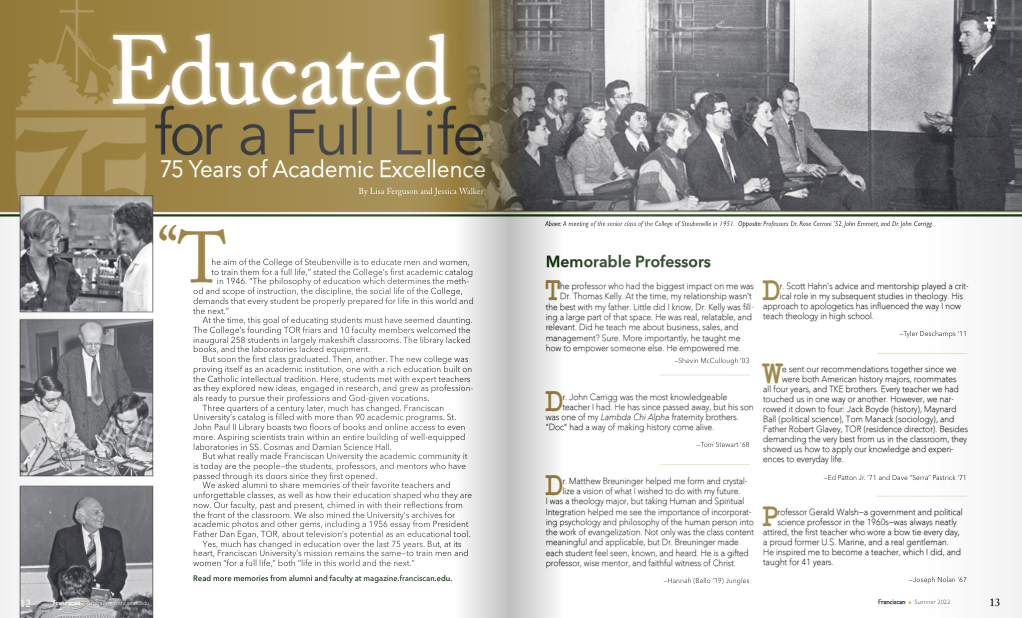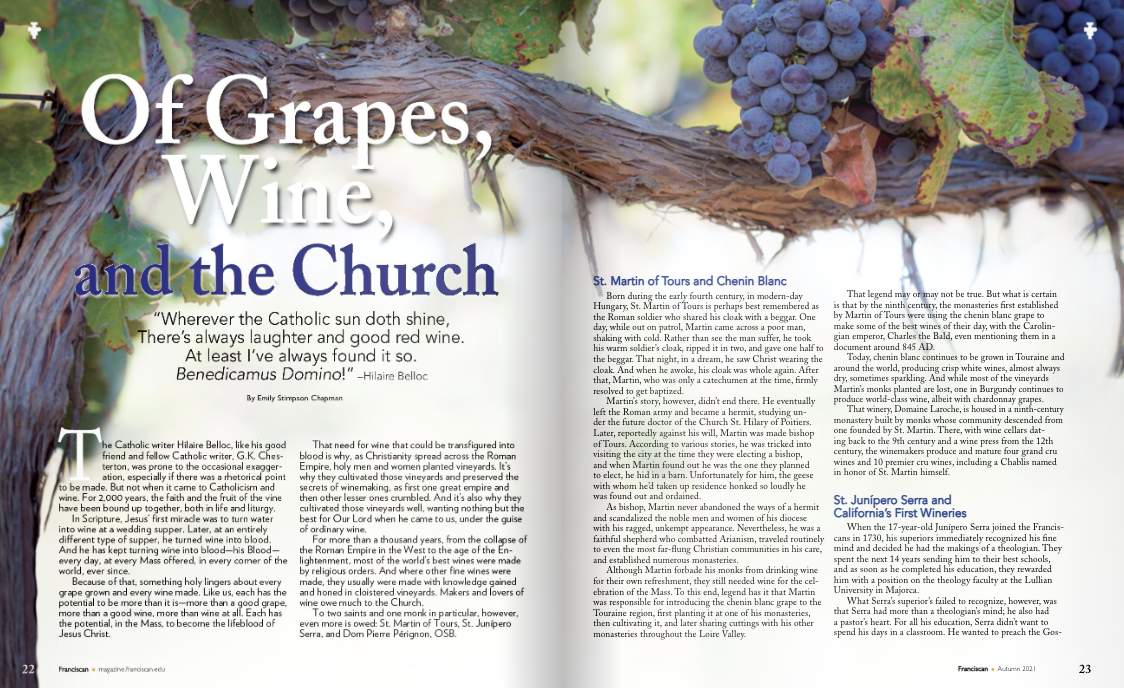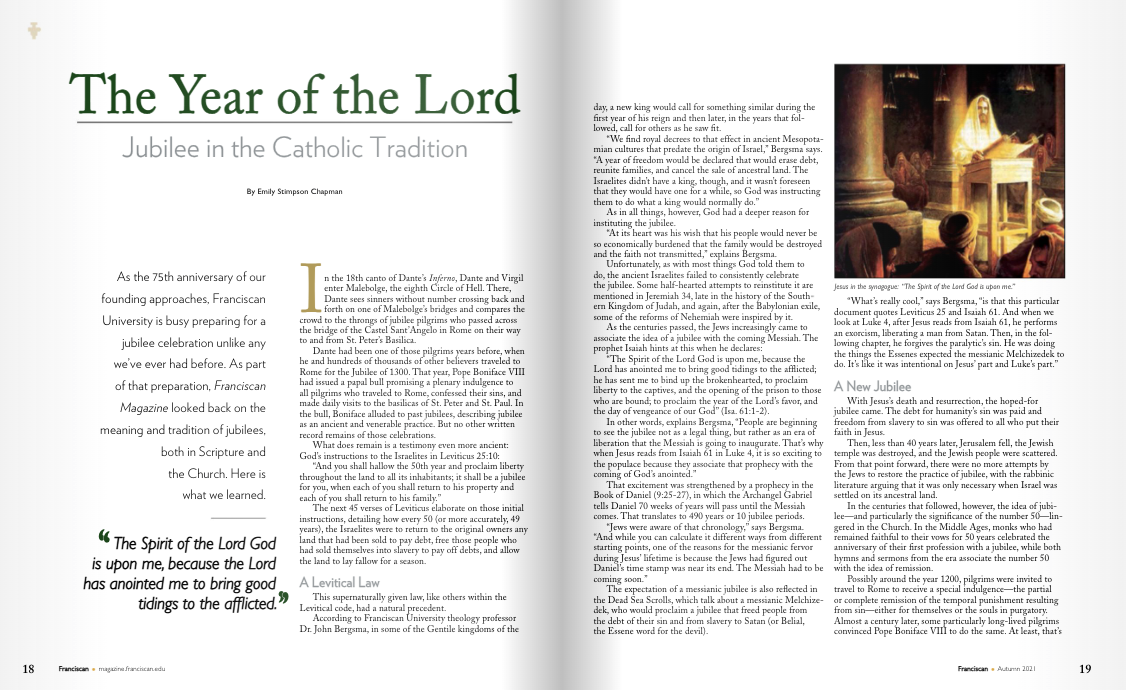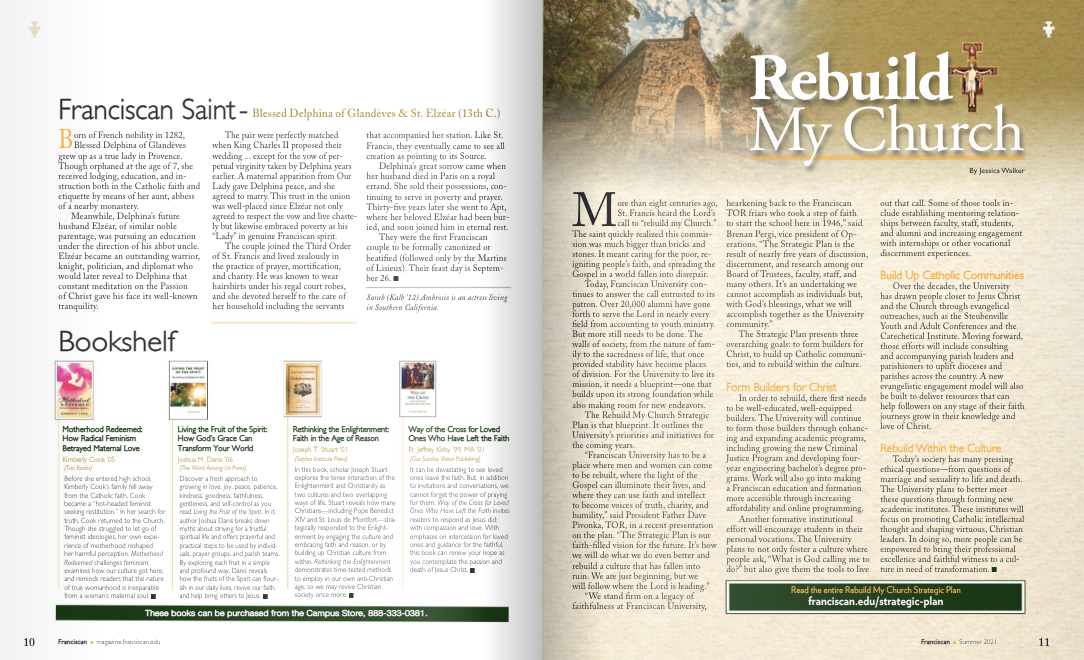The evening of February 24, Franciscan University students filled Christ the King Chapel. Plans were canceled, homework set aside, sleep postponed. Instead, students had an impromptu prayer vigil for peace: Russia had invaded Ukraine.
A month later, the University gathered to pray for peace again, this time in union with the universal Church on the feast of the Annunciation. Hundreds joined a Marian procession around campus as Pope Francis, along with bishops worldwide, consecrated Russia and Ukraine to the Immaculate Heart of Mary.
The prayers for peace continue. But members of the Franciscan community have also stepped up, in ways large and small, to help those impacted by war.
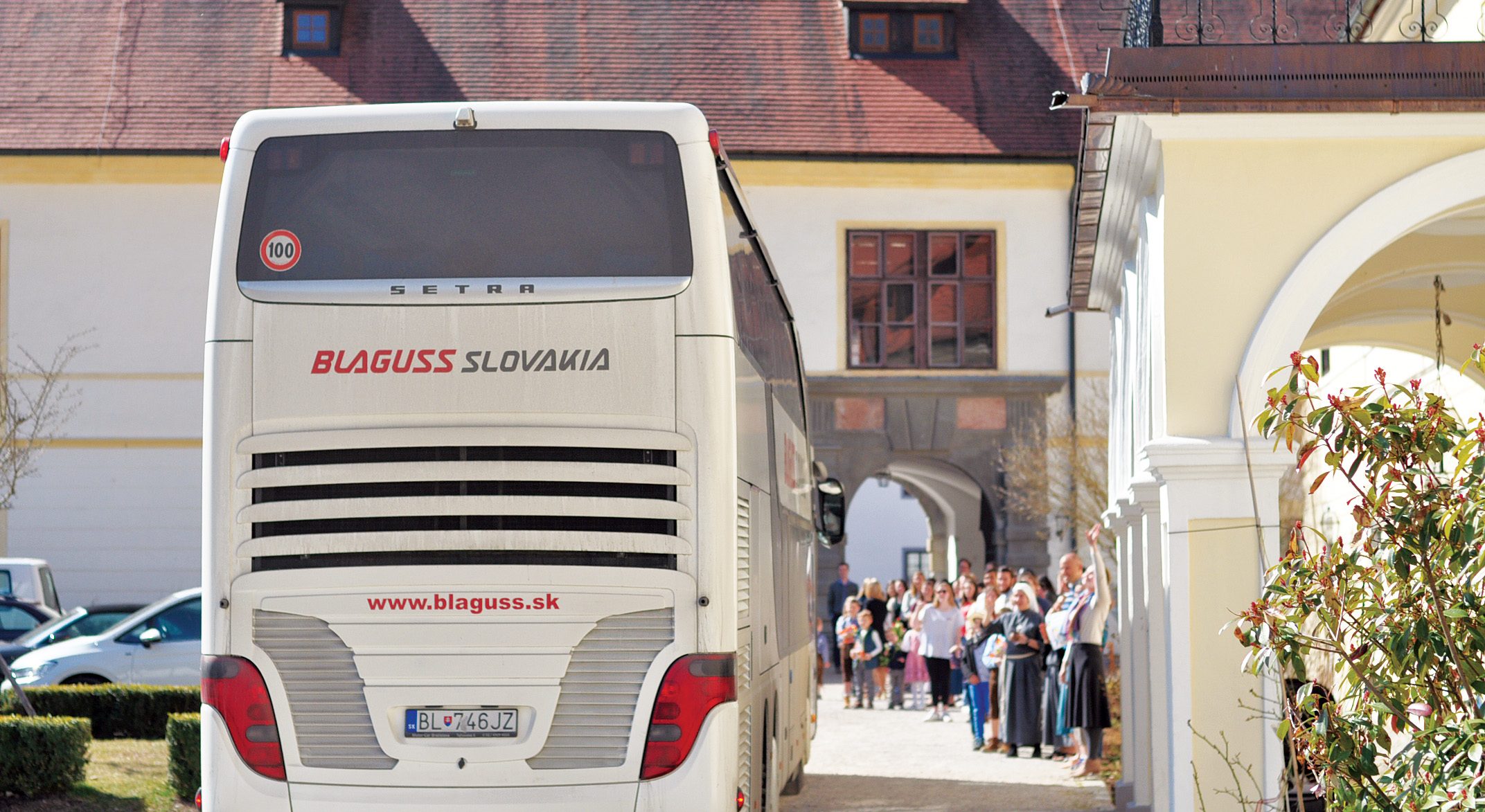
Franciscan students, faculty, staff, and children greet Ukrainian refugees at the Kartause on March 27.
Housing Refugees
It was almost midnight. Austrian Program Director Tom Wolter and a few others had driven from Franciscan’s Austrian campus to drop off supplies for refugees at the Poland-Ukraine border. The conflict was only in its beginning weeks, yet millions were already fleeing their homes to other European countries. In the frigid darkness, Wolter could see the lines of Ukrainian women and children waiting to be processed into Poland.
“It was at that point we had to do something. We had to provide a helping hand,” Wolter says. “We had an opportunity to provide a safe place where they could be away from the travesty happening in their homeland.”
Austrian Program staff collaborated with the Austrian organization Kleine Herzen to house refugees in two empty wings of the Kartause Maria Thronus Iesu (Monastery of Our Lady, Throne of Jesus), Franciscan’s study abroad site in Gaming, Austria. On March 27, a bus of Ukrainian women and children arrived at the Kartause. Franciscan students warmly welcomed them, passing out flowers for the mothers and treats for the children and helping carry luggage.
Oksana Nazarchuk, one of the organizers associated with Kleine Herzen, traveled with the women and children to Gaming. Upon arriving, she says, “The refugees found not only shelter but also the support and love from Franciscan University. Most mothers were crying, seeing such support and readiness to help.”
“If you put yourself in their shoes,” Wolter says, “they were saying goodbye to their loved ones—their husbands, their fathers—and then they were asked to go on a bus. They didn’t know where they were going and when they were going to come back home.”
The group of more than 50 refugees—including 32 children, most of them younger than 12 years old—stayed at the Kartause during the spring. They came from different parts of Ukraine, some from the hardest hit areas. Shortly after arriving, they had an icebreaker event so the mothers could socialize and settle in while the children played games.
Back in America, the rest of the Franciscan community and generous benefactors also helped by raising over $182,000 to care for the refugees.
“This is a very concrete way Franciscan University and those participating in the Austrian Program are truly bringing to life what we stand for,” Wolter says.
The experience is one that not only touched the Ukrainian mothers and children but also the Franciscan students studying abroad.
“The students had an experience they’ll remember for the rest of their lives,” Wolter says. “They had a unique opportunity to help the most vulnerable in a very tragic situation. It’s a beautiful testimony.”
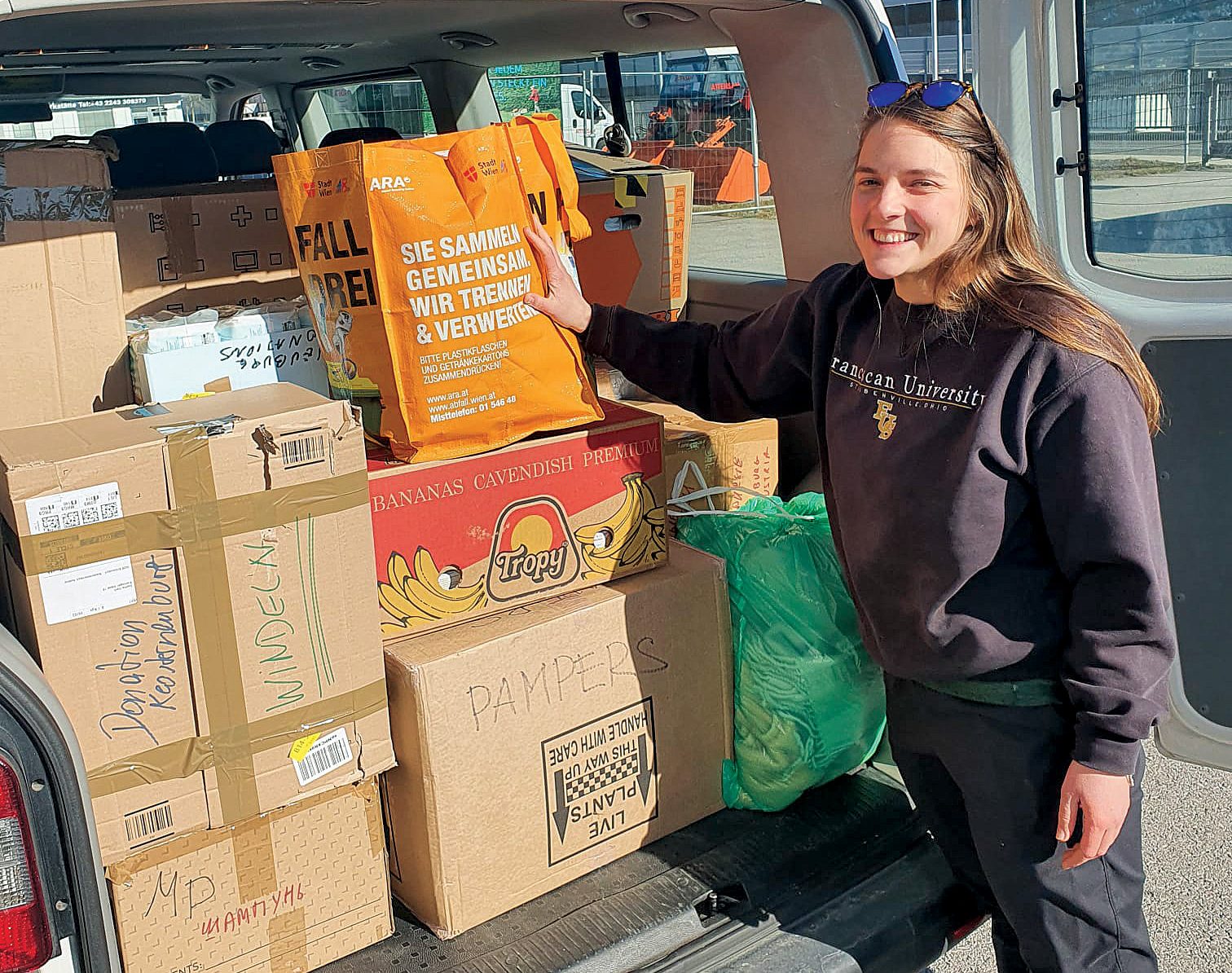
Mary Krolicki, Austrian campus residence director, gathers supplies for a refugee center in Poland.
To the Border and Back
Franciscan student Sophia Charron had been to Ukraine before, but as she made her way into Ukraine in March, the presence of war was evident. The roads to the border were gridlocked, and checkpoints dotted the area.
“I saw cars parked that people had left because they ran out of gas or because the lines were too long, and they decided to cross on foot,” Charron says.
Charron was born in Ukraine; her mom is Ukrainian, and her dad is Father Jason Charron, a Ukrainian Catholic priest who serves in Pittsburgh and who teaches a class at Franciscan. At the war’s onset, her father teamed up with a parishioner to bring a group of Ukrainian orphans out of the country and into Lithuania. Then in early March, separately from her father’s trip, Sophia Charron booked her own plane ticket.
“The original plan was just for me to go to Lithuania to see the children, bring them things, and translate,” she says. “But while I was there, we realized quickly there were still a lot of people who needed help out of Ukraine.”
Those people included an older couple from eastern Ukraine, whose son requested help for them in leaving the country. Charron and the parishioner headed to Poland before entering the Ukrainian city of Lviv, where they stayed with Charron’s uncle. There, they met the couple, who had travelled 18 hours cross-country on a train, and escorted them to Poland.
While waiting at the border for hours, Charron says she was struck by how people from all walks of life were made equal by the circumstances. Yet, she adds, “you could see how different personalities reacted to the stress of the situation” and how “little things you do make a lot of difference.”
Despite the terrible situation, she says, the Ukrainian people overall displayed determination and unity. In addition to praying, advocating, and donating to local organizations, awareness about what’s happening in Ukraine is important.
“Even if you feel like you can’t do anything,” she says, “the least you can do is to educate yourself.”
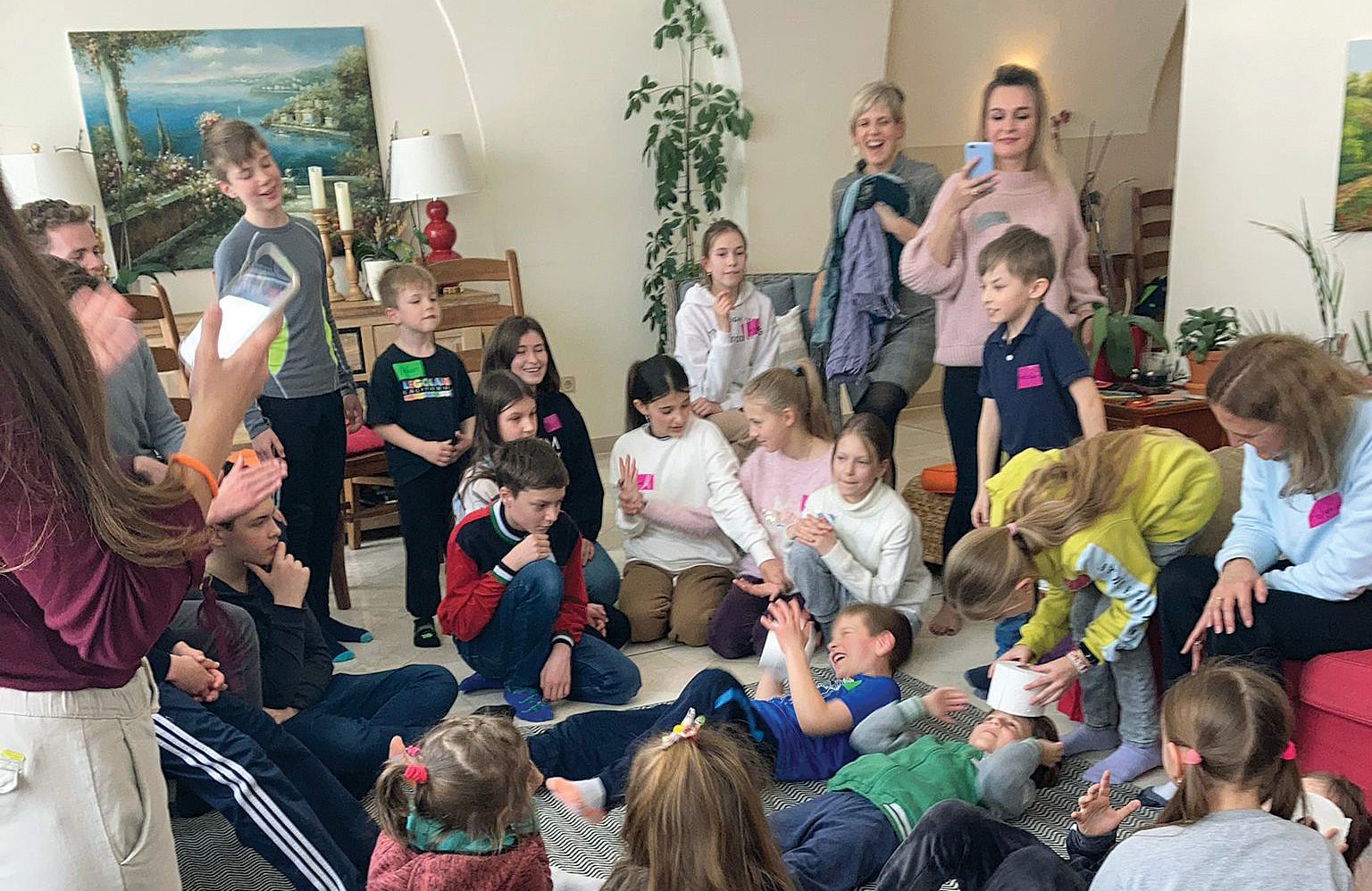
Refugee children enjoy games at the Kartause.




